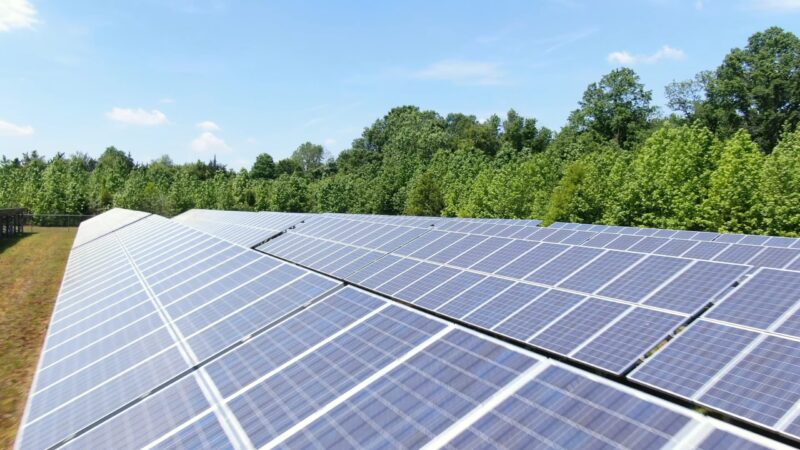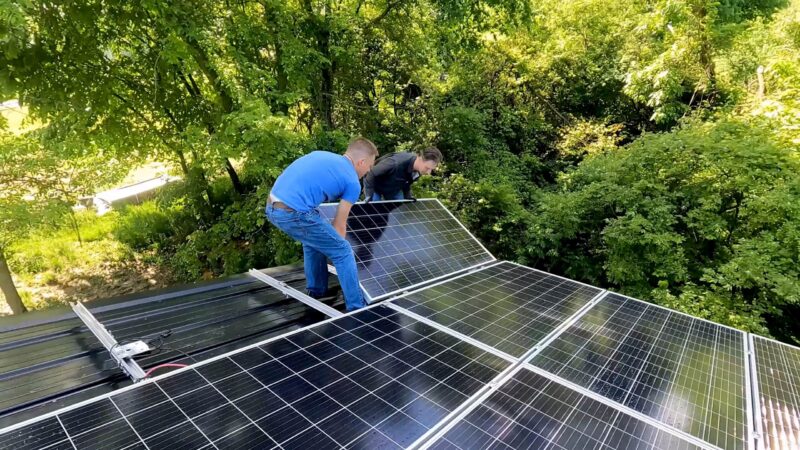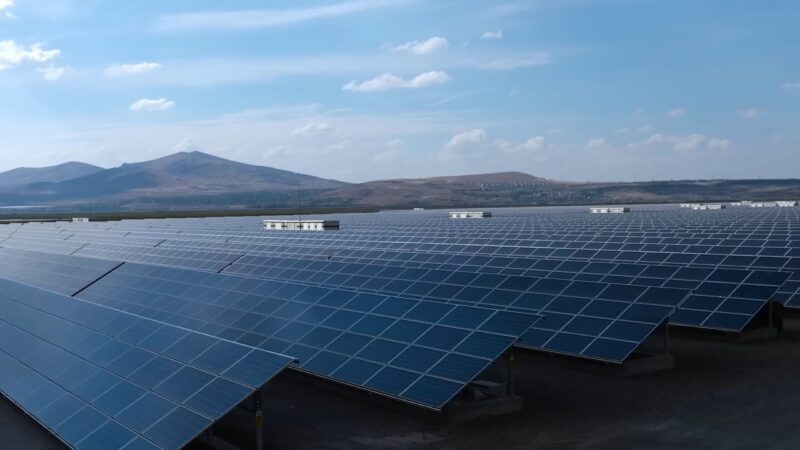Georgia, with its abundant sunshine, is a beacon for solar energy enthusiasts. Averaging a remarkable 205 sunny days annually, it’s a state that naturally invites homeowners and businesses to harness the power of the sun.
However, while the sun generously shines over Georgia, statewide solar incentives and tax credits remain elusive. But don’t be disheartened!
2023 brings a plethora of opportunities to save on solar investments in Georgia.
Federal Solar Tax Credit

The U.S. federal government, recognizing the environmental and economic benefits of solar energy, has introduced incentives to encourage its adoption. One such incentive is the federal solar tax credit.
Here’s a deeper dive into what it entails:
- What is it? The federal solar tax credit is a financial incentive that allows taxpayers to deduct a portion of the cost of installing a solar energy system from their federal taxes.
- How much can you save? The credit is set at 30% of the total cost of the system, including both the solar panels themselves and the cost of installation. For instance, if you were to invest in a solar system that costs $10,000, you could reduce your federal tax bill by $3,000.
- Who is eligible? This isn’t just an incentive for individual homeowners. Commercial entities, such as businesses, can also take advantage of this tax credit, making it a broad-reaching initiative to boost solar energy adoption across the board.
Georgia Power Home Energy Improvement Program (HEIP)
Georgia Power, a major utility provider, has its own set of incentives to promote energy efficiency and the use of renewable energy sources. Their Home Energy Improvement Program (HEIP) is a prime example:
Purpose
The HEIP is designed for individuals who are dedicated to improving the energy efficiency of their homes, with a particular emphasis on the installation of solar energy systems.
Requirements
To be eligible for the benefits of this program, there’s a stipulation. Participants must demonstrate a reduction in their electricity consumption by at least 20%.
This ensures that the program is benefiting those who are genuinely making efforts to reduce their energy footprint.
Local Solar Incentives

Once the above condition is met, participants can receive a rebate. This rebate can cover up to 50% of the costs associated with their energy improvement projects.
However, there’s a ceiling to this benefit – the maximum rebate amount is capped at $1,100. Georgia’s local governments are not just spectators in the push for renewable energy; they’re active participants.
Many cities within the state have recognized the importance of solar energy and are offering incentives to encourage its adoption.
Here’s a closer look:
- City Initiatives: Cities such as Atlanta are leading the way in promoting solar energy. They have put in place rebate programs to financially support homeowners who choose to install solar panels.
- Atlanta’s Rebate Program: Specifically, in Atlanta, there’s a notable incentive. Homeowners are rewarded with a rebate of $0.50 for every watt of solar panels they install. This means that if you install a 5,000-watt (or 5 kW) system, you could receive a rebate of $2,500.
Maximising Solar Savings in Georgia

While the incentives are a great starting point, there are additional ways to ensure you’re optimizing your solar investment in Georgia:
Comparison Shopping
It’s essential to do your homework. Instead of going with the first solar installer you find, request quotes from several providers. This will give you a clearer picture of the market rates and help you secure the best deal.
Solar Loans
The initial investment for a solar system can be substantial. However, solar loans offer a solution. By financing your solar system, you can spread out the costs over several years, making the financial commitment more bearable.
Net Metering
This is a transformative policy for solar adopters. Net metering allows homeowners with solar systems to sell any excess energy they produce back to the utility companies. This can lead to significant savings on electricity bills. In some cases, homeowners might even find that their electricity bills are completely offset by the revenue from selling their surplus solar energy.
Things to Ponder

As you mull over the idea of transitioning to solar energy, it’s essential to consider various facets of this decision. Here are some key points to ponder:
- Cost Dynamics: Over the years, the costs associated with solar panels have seen a consistent decline. This trend has made solar technology more affordable and within reach for many. It’s no longer a luxury but a viable option for the masses.
- Longevity and Savings: Solar panels aren’t just a short-term investment. With an average lifespan of around 25 years, they offer extended periods of savings on electricity bills. This long-term perspective can translate to significant financial benefits over time.
- Environmental Impact: Beyond the monetary advantages, there’s a larger, more profound benefit to consider. Solar energy is a clean, renewable source of power. By adopting solar, you’re not just saving money; you’re also playing a part in reducing our collective reliance on fossil fuels. This shift is crucial for the environment and our planet’s future.
FAQ
How does Georgia’s sunshine compare to neighboring states?
Georgia gets plenty of sunshine, just slightly less than the neighboring state of Florida. This means solar panels in Georgia can generate more electricity than in many other U.S. regions.
How long do high-quality solar panels typically last?
High-quality solar panels can last more than 25 years.
Are there any other organizations or resources where I can learn more about solar incentives in Georgia?
Yes, you can refer to the Solar Energy Industries Association (SEIA) for more information on Georgia’s solar policy.
Does Georgia Power offer any rebates for electric vehicle chargers?
Yes, if you own an electric vehicle and are considering solar for charging purposes, Georgia Power offers EV charger rebates.
Wrapping Up
In conclusion, while Georgia might not offer statewide solar incentives, the state is far from barren when it comes to solar savings opportunities. Between the federal solar tax credit, Georgia Power’s HEIP, and local initiatives, there’s a wealth of incentives awaiting prospective solar adopters.
If you’re in Georgia and contemplating a solar transition, now is the time to dive deep into research and consultations. The sun might be setting on some incentives, but with the right approach, your solar dreams can still shine bright.
